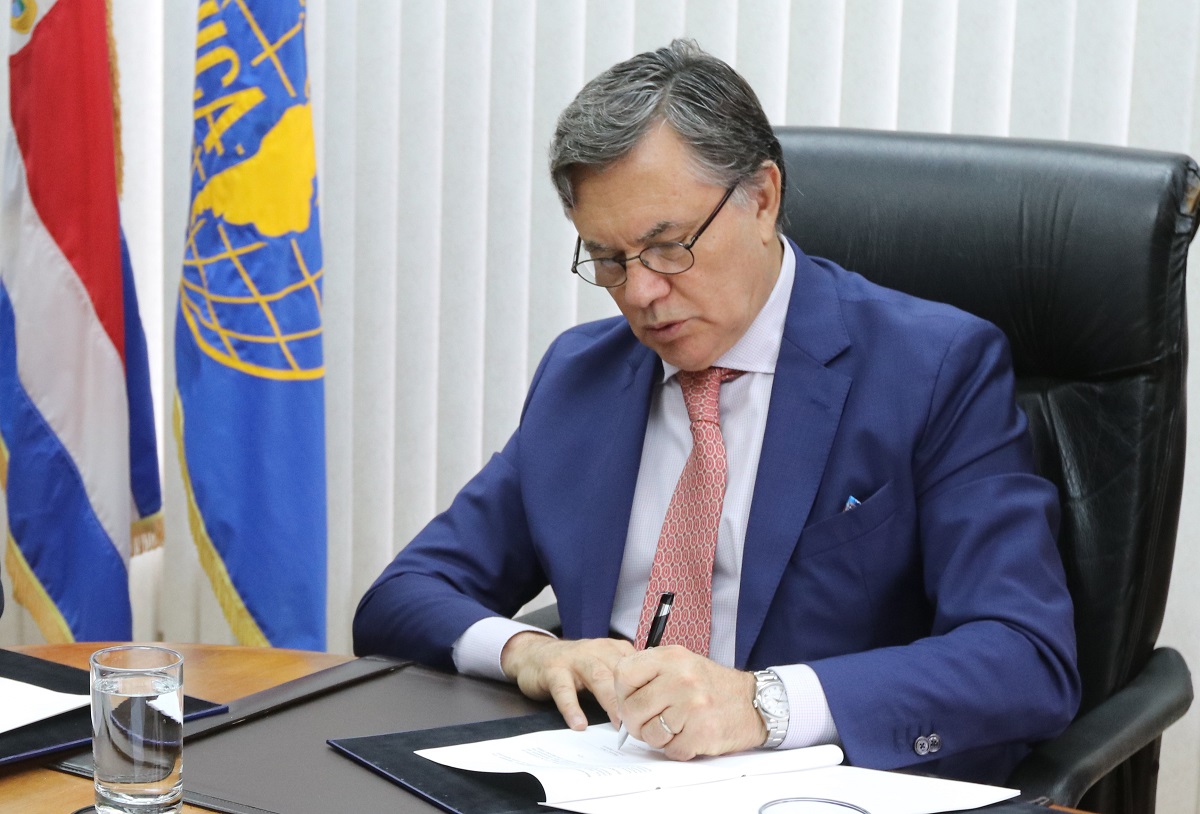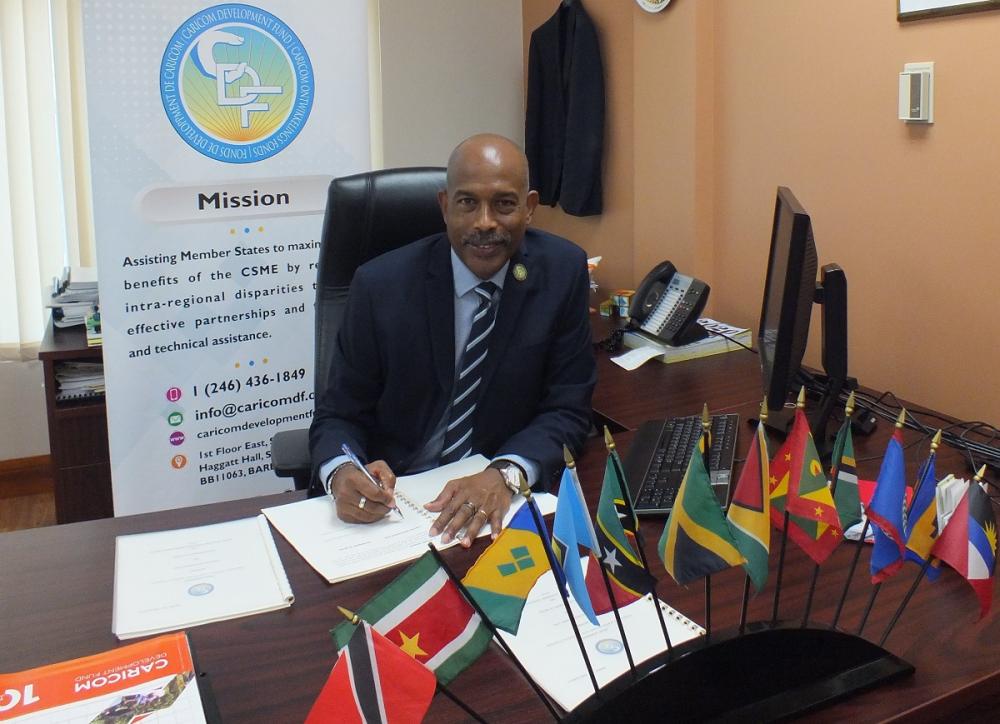The two agencies have agreed on some strategic areas of cooperation including productivity and competitiveness of the agri-food and agro-tourism sectors; territorial development and rural well-being; agriculture, climate change and natural resource management; food and nutrition security, youth and women’s use and control of agricultural assets and technological innovation in agriculture.

San Jose, 6 October 2020 (IICA). The CARICOM Development Fund (CDF) and the Inter-American Institute for Cooperation on Agriculture (IICA), signed a General Agreement for Technical Cooperation, which will establish a broad framework for collaboration on initiatives geared towards the advancement of agriculture development in the Caribbean region.
While the vital importance of the agricultural sector as a pillar of growth and stability for Caribbean economies has been emphasised by the adverse impacts of the COVID-19 pandemic on food and nutrition security, most countries in the Caribbean face several systemic constraints on their capacity for sustainable food production. Many farmers, agro-processors and other small and medium sized enterprises in the sector continue to be confronted with challenges to their attempts to scale up production including: access to financing, vulnerability to the effects of natural hazards and climate change, limited land space, satisfaction of international market standards, competition from imports and limited capacity to innovate and adopt best practices. In addition, the region’s high food import bill puts additional strain on foreign exchange reserves.
Solutions call for greater efforts at not only increasing levels of production and enhancing productivity among farmers and processors, but also ensuring improved linkages between producers, processors, and buyers of food, including in the tourism sector.
Over the past decade, the CDF has provided in excess of US$23M in direct financing and technical assistance to the less developed and disadvantaged countries of CARICOM to enhance agricultural production capability, infrastructure and competitiveness, while IICA has, for almost 78 years, focused on providing technical cooperation of excellence with a view to strengthening institutional capacities of public, private and civil society and supporting the integration mechanism required to achieve sustainable and equitable agriculture development.
The two agencies have agreed on some strategic areas of cooperation including:
a) Productivity and competitiveness of the agri-food and agro-tourism sectors;
b) Territorial development and rural well-being;
c) Agriculture, climate change and natural resource management;
d) Food and nutrition security;
e) Youth and Women’s use and control of agricultural assets; and
f) Technological innovation in agriculture.

“This agreement strengthens our initiatives in the Caribbean countries to increase productivity, add value and link between producers and local markets, in order to reduce imports and guarantee the food security of their inhabitants, together with a partner, such as CDF, who knows the region very well”, stated the Director General of IICA, Manuel Otero.
The Chief Executive Officer of the CDF, Rodinald Soomer, highlighted the importance of the partnership with IICA “to the consolidation of CDF’s efforts at strengthening the productive base of agriculture in the Caribbean region, as the foundation for increasing the contribution of agriculture to intra-regional trade and economic growth, especially in the disadvantaged countries and regions in the Community.”
More information:
IICA: Institutional Communication Division.
comunicacion.institucional@iica.int
CDF: info@caricomdf.org











